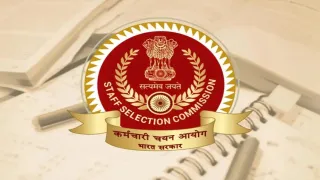The GATE (Graduate Aptitude Test in Engineering) 2026 exam season is shaping up to be one of the most competitive yet, and aspirants across India have already begun tightening their preparation strategy. With the Indian Institute of Technology (IIT) officially releasing the exam schedule, rules, and critical instructions for candidates, it’s more important than ever to understand what is allowed, what is prohibited, and what consequences can arise from even the smallest rule violation. GATE isn’t just an exam; it’s a gateway to M.Tech admissions, PSU recruitments, research opportunities, and long-term career growth. And because the stakes are high, the authorities implement strict guidelines that every aspirant must follow to avoid disqualification.
GATE 2026 Exam Dates: February 7 to 15 - Two Shifts Every Day
IIT has confirmed that GATE 2026 will be conducted from February 7 to February 15, 2026, covering multiple subjects across various days. Similar to previous years, the exam will run in two shifts daily, giving candidates clarity on scheduling and planning.
Shift Timings
Forenoon Shift: 9:30 AM to 12:30 PM
Afternoon Shift: 2:30 PM to 5:30 PM
Candidates should aim to reach the centre at least 60-75 minutes before the scheduled shift, as verification, biometric attendance, and security checks take time. Late entry is permitted, but only under specific conditions, which are discussed later. Results for GATE 2026 are expected to be announced by March 19, 2026, giving candidates enough time to prepare for admissions and PSU opportunities.
Important Clarifications Issued by IIT for GATE 2026 Aspirants
The organising institute has rolled out a list of commonly asked questions and strict instructions that candidates must understand thoroughly. These guidelines ensure transparency, fairness, and discipline throughout the examination.
1. Will You Get Extra Time?
Many candidates worry about delayed entry due to traffic, unpredictable weather, or local transportation issues. IIT has clearly mentioned:
Delayed entry is allowed only up to 30 minutes after the exam begins.
No additional time will be given, even if your entry was permitted.
For example, if a candidate logs in at 9:45 AM for a 9:30 AM exam, the exam will still end at 12:30 PM sharp, leaving no compensation for the lost minutes. This makes punctuality crucial. A delay of even a few minutes can reduce your effective answering time and increase exam-day stress.
2. Can You Leave the Exam Hall During the Exam? No.
GATE is a high-security exam, and IIT has a strict stance on movement inside the hall.
Candidates cannot leave the exam hall for any reason during the three-hour duration.
Whether it is water, restroom breaks, or personal discomfort, you must remain seated until the exam ends.
Leaving early is permitted only after the official end time. Plan your hydration and restroom breaks before entering the hall to avoid inconvenience.
3. Rough Work: Scribble Pads, Not Loose Sheets
Candidates often wonder if they should carry rough sheets or stationery, but the rules are straightforward:
You will be provided with one scribble pad at a time.
If you need another, you must return the previous pad.
At the end of the exam, every scribble pad must be returned, even if unused.
No personal sheets or notebooks are allowed, and the virtual scientific calculator on the screen must be used for all calculations.
4. Can You Enter the Hall Anytime During the Exam? Not Beyond 30 Minutes.
This is one of the most strictly enforced rules.
Entry beyond 30 minutes after the exam starts is not allowed under any circumstances.
Even if you have a legitimate reason, the system will not permit login past the cutoff time.
This rule ensures fairness and prevents question leakage, so candidates must plan travel carefully and avoid last-minute chaos.
5. List of Items Strictly Prohibited Inside the Hall
The GATE authorities follow an extremely strict policy on what candidates can carry. The following items are completely banned:
Mobile phones (switched on or off)
Smartwatches or regular watches
Physical calculators
Papers, books, notes, loose sheets
Pens, pencils, geometry boxes
Wallets, pouches, handbags
Electronic gadgets or devices capable of data storage or communication
Candidates will be allowed to carry specific permitted items like their admit card and original ID proof, but nothing outside the essential list.
6. Why Physical Calculators Are Not Allowed
Many students still ask why physical calculators are banned even though engineering exams traditionally allow them. The reason is uniformity. Every candidate gets access to the same virtual scientific calculator, preventing unfair advantage and eliminating model-based discrepancies. Candidates should practice extensively on the virtual calculator during preparation because its interface differs from a physical device.
7. No Storage Facility at the Exam Centre
One of the biggest mistakes candidates make is assuming there will be a counter or locker room for keeping their belongings. IIT has clearly stated:
There will be no arrangement for safekeeping personal items.
Candidates must avoid bringing valuables or prohibited items.
If you bring a phone or a wallet, you will have to keep it outside at your own risk, which is not advisable.
8. Consequences of Carrying Prohibited Items
The consequences are extremely severe.
If any prohibited item is found on your body, in your pockets, or even inadvertently carried:
You will face instant disqualification.
You will be barred from completing the exam.
Your future examination eligibility may be affected.
This includes mobile phones, calculators on watches, and hidden electronic devices. There is zero tolerance. IIT takes this rule very seriously to maintain exam integrity.
9. What Candidates Should Carry on Exam Day
To avoid last-minute stress, prepare a checklist:
Essential Items:
GATE 2026 Admit Card (printed)
Valid Photo ID (Aadhaar, Passport, PAN, Voter ID, or Driver’s License)
One transparent water bottle (if allowed by centre)
Simple clothing without accessories
No metallic items if the centre uses frisking machines
Everything else is unnecessary and risky.
10. How Not to Break Rules Unknowingly?
Candidates often get disqualified for unintentional mistakes. Here are quick tips to stay safe:
Do not bring your phone inside the main gate.
Do not wear smartwatches, fitness bands, or Bluetooth devices.
Avoid jeans with metal chains or heavy jewellery.
Double-check your pockets before entering.
Carry only what is mentioned in the admit card.
A single mistake can cost your entire attempt.
11. Understanding Exam Proximity and Fairness
The strict guidelines are not just rules; they are part of a larger system intended to keep the exam fair, transparent, and equal for every student. Proximity rules ensure:
No candidate gets extra time
No candidate accesses unauthorized help
No one disrupts the environment inside the exam hall
GATE’s credibility depends on the discipline maintained at every exam centre.
12. Strategy for Exam Day
To ensure that both your performance and compliance are strong:
Reach early to avoid panic.
Carry multiple copies of your admit card.
Familiarise yourself with the centre location beforehand.
Practice with the virtual calculator to avoid last-minute confusion.
Keep hydration and rest managed before entering the hall.
Your mindset matters as much as your technical preparation.
13. What Happens Next?
Once the exam ends:
You must submit your scribble pads.
Wait quietly until the invigilator allows exit.
Do not discuss questions loudly inside the centre.
Results will come out on March 19, 2026.
Scorecards and qualifying cutoffs will be available on the official GATE portal.
GATE 2026 is more than an exam; it’s an opportunity that can shape your future career path. The strict rules, security checks, and guidelines are not obstacles but protective measures designed to maintain fairness for every candidate in the country. By understanding the February 7 to 15 schedule, being mindful of prohibited items, respecting entry and exit rules, and preparing yourself for a disciplined exam experience, you can ensure that nothing stands between you and your best performance. Your score depends on your preparation. Your exam safety depends on your discipline.























